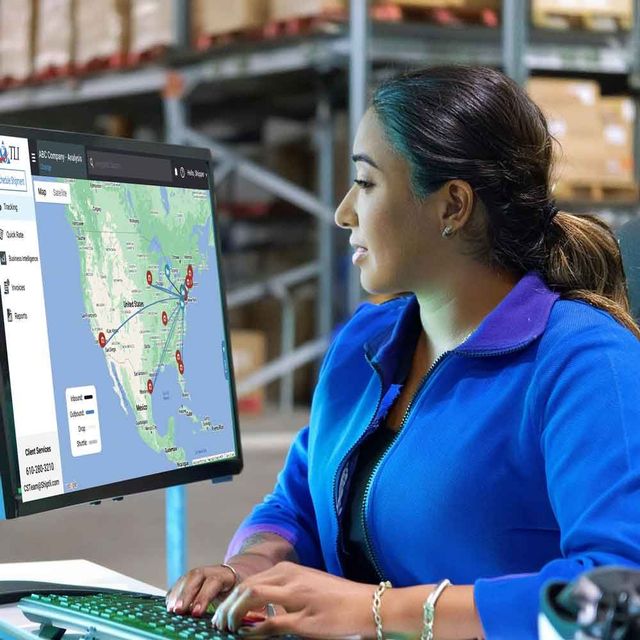In the fast-paced world of today’s supply chain moving freight involves more than just routes and trucks. It’s about data, flexibility, and having the right system to deal with any unexpected circumstances. If you’re a distributor attempting to handle several shipments in just a few hours or a manufacturer scrambling to meet deadlines, your logistics provider should provide more than basic solutions. They must provide assurance, control and clarity.
Modern freight brokerage services, as well as 3PL providers that are tech-driven are able to change this.
The modern Freight Broker is more than an Middleman
Traditionally the role of a freight broker was seen as someone who simply linked shippers to carriers. Nowadays, freight brokers are strategic partners who manage transportation complexity on behalf of customers. They negotiate better rates, identify reliable carriers, resolve disruptions, and assist in avoiding costly delays.

Image credit: translogisticsinc.com
In the end, choosing the right freight broker will not only cost you less money- they save you from logistics headaches that could hurt your bottom line.
Translogistics, Inc., or TLI is changing the relationship between firms and customers. By offering multimodal freight brokerage services, they allow businesses to shift between parcel, LTL (less-than-truckload), and volume LTL shipments depending on urgency, budget, or customer needs. This flexibility is even more vital today than it was in the past.
The 3PL Provider: An Extra layer of strategic planning You Never Really Need
If you’re dealing with multiple carriers, juggling invoices, tracking your shipments manually, or managing claims in spreadsheets, it may be time to look into a 3PL provider. Third-party logistical partners can help you save time by taking over these tasks that are tedious.
They bring structure, strategies and know-how to your department of logistics. They examine the patterns of your shipping, recommend more efficient solutions, and introduce the latest technology to your logistics department. They’re not just reacting to issues, but also preventing the occurrence of problems. In a field where efficiency and transparency are not a matter of debate, it’s actually the technology behind the scenes that make the most impact.
The function of a Transportation Management System
Consider a transportation system as a central command point for your cargo. This is your digital brain, which lets you track your, control and optimize all of your shipping on one platform. From viewing real-time carrier rates to generating Bills of Lading and auditing freight invoices, a tMS gives you the transparency and control that you’ve been lacking.
Translogistics’ ViewPoint TMS platform For instance, it was built with exactly the same goals in mind. It compares rates across various modes, and has drag-and-drop entry of data that is powered by AI to eliminate the manually typing process that can slow teams down. This is just one illustration of how technology in logistics is evolving to allow for quicker, more efficient and more accurate operations.
The partnership is the key to the success
It’s more than just about the systems and services, but also about the people. It is essential to have a team of individuals who know what’s at stake in the event of a delivery being delayed or a non-reliable transporter.
That’s why choosing a 3PL provider or freight broker isn’t just a transactional decision.
It’s a smart choice.
Find a vendor who listens, adapts, and invests in technologies that keep your supply chain moving forward. Someone who can handle your deliveries as quickly and with the same care that you do. The right support system can turn the chaos that is freight into an efficient operation, and help your business grow. Because in the modern world of logistics, it’s not just about moving freight. It’s about moving more efficiently.
